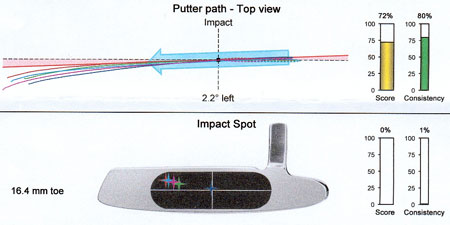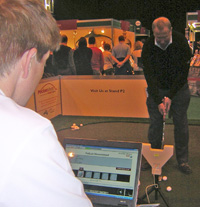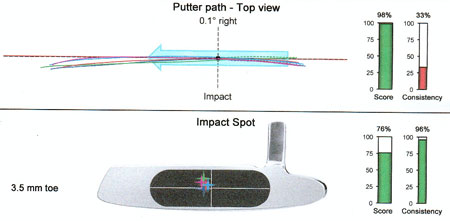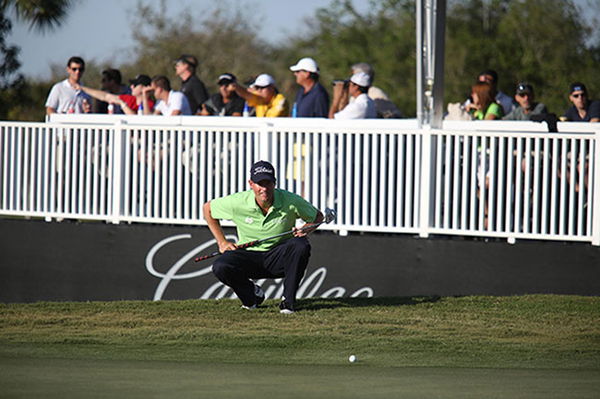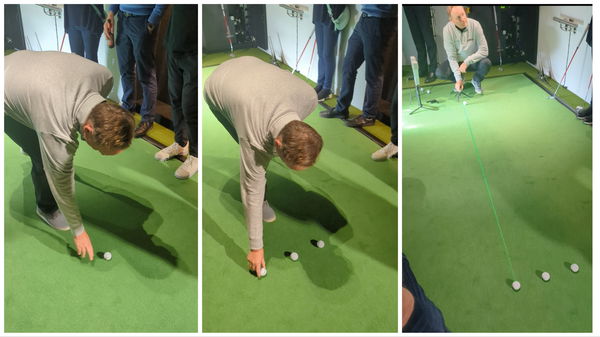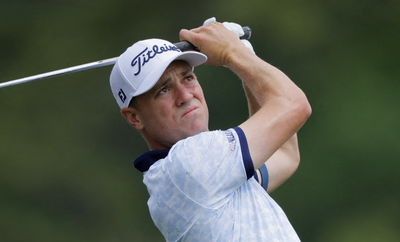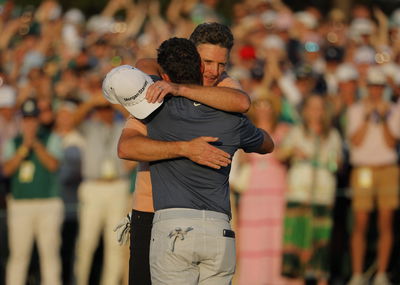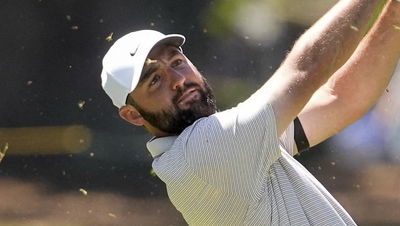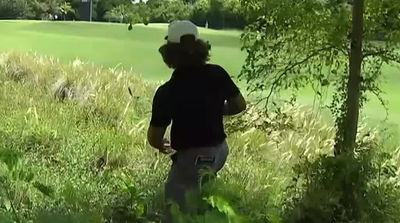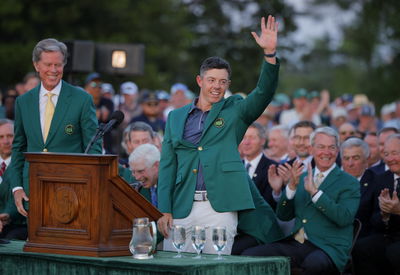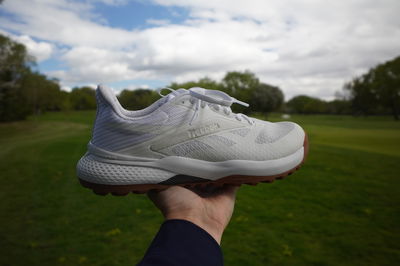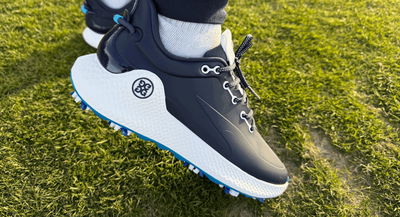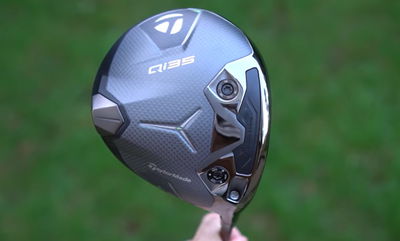The Science of putting: Part 1
How computer technology at the UK Golf Show opened my eyes to a major flaw in my putting stroke.

A visit to the | |
I was one of dozens who took the opportunity to try the SAM Putt Lab - an analysis and training system based on ultrasound measurements, invented by German neurologist Dr Christian Marquardt at Science and Motion Golf and demonstrated by Dave Lamplough, one of the coaches at the
Using a putter wired to a computer lap top, it measures 28 parameters of your putting stroke and displays the results in graphic reports - that are easy to follow and from which you can amend any flaws in your stroke - of which I had many! I've been playing golf for over 30 years and have experimented with various grips - orthodox reverse overlap, left-below right and more recently 'the claw' - using the right hand to hold the grip like a pencil - but it's the stroke that's the key, not so much in the way you hold the handle. After a handful of putts to an upturned tee placed 15 feet away, the analysis revealed the smallest details of movement in the swing and direction of the putter head, allowing the player to develop improvements and training strategies. No wonder Padraig Harrington, one of the world's greatest putters and one of the game's finest technicians with the flat stick, has his own personal SAM Putt Lab at home in Dublin. | |
Before I submitted to the analysis, I thought I was a better-than-average putter, able to feel the distance and make my fair share of knee-knocking five footers, depending on which grip I favoured on the day. But, using the analysis, I quickly learned that in the backswing, not only was I taking the putter head on an out-to-in-path, I was automatically compensating by opening the clubface in the throughswing. And that's not all. I was consistently striking the ball 16.4 millimetres (from the centre of the putter) - that's at least half an inch! - towards the toe and 10 cm (5 ins) into the throughswing, the face was already 24 degrees closed! Scary - and a recipe for disaster!
*Concentrate on a straighter take-away *Focus on striking ball in the centre of the putter (you can feel the feedback in the shaft through the sweet spot when you do) *Keep the face square at impact *Hold your follow through to stop the face from closing | |
*At address let the arms hang loose *take your grip so that the back of the left hand and the palm of the right face the target line *Keep your shoulders square *Take the putter back and through on the same line - no wavering *Hold your follow through to keep the clubface square to the target I could feel the tension in my arms and hands as I struggled to overcome years of natural tendency to take the clubhead away on that destructive outside path. But I'm confident now that with practice I can start to see how modern technology has opened my eyes on how to hole more putts. |
